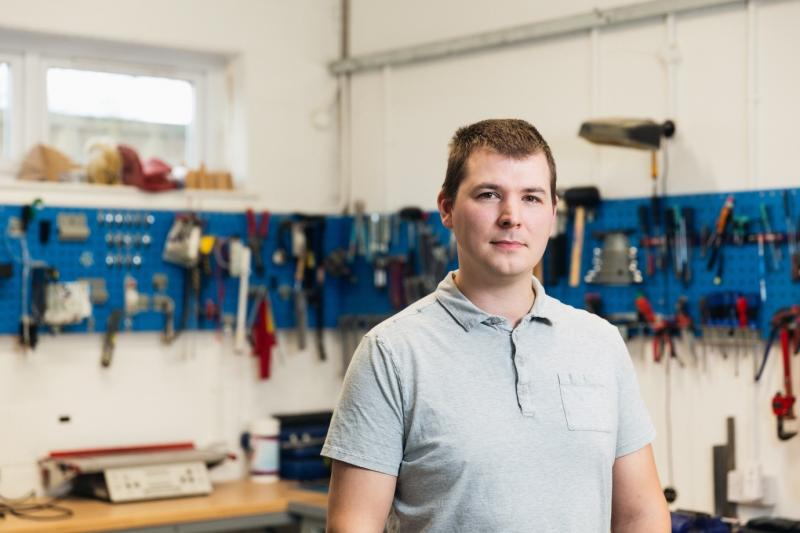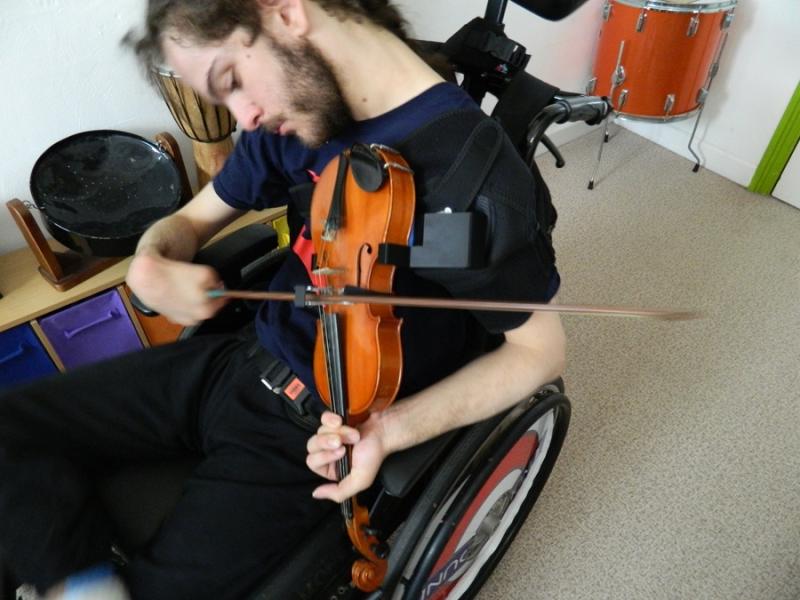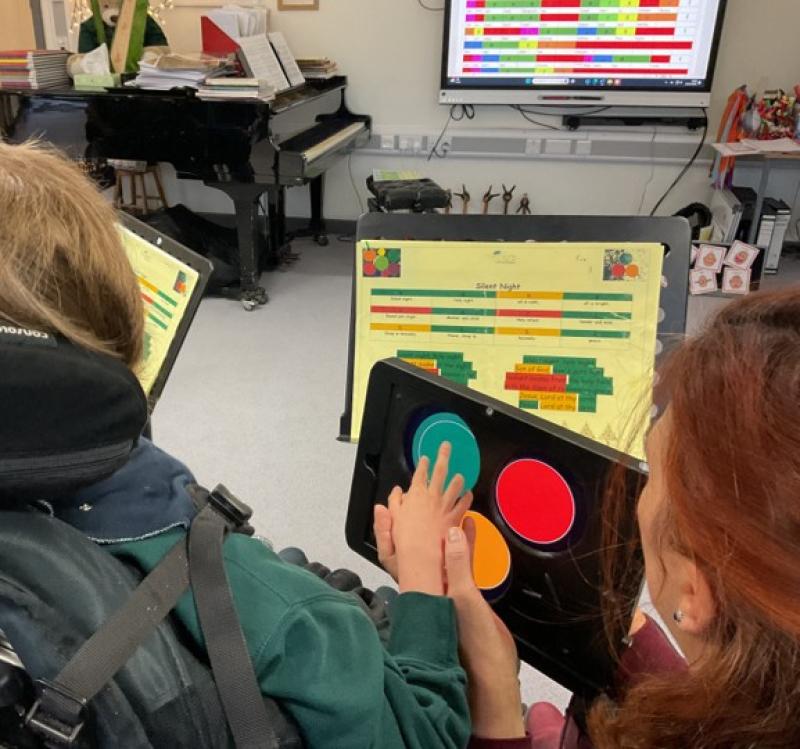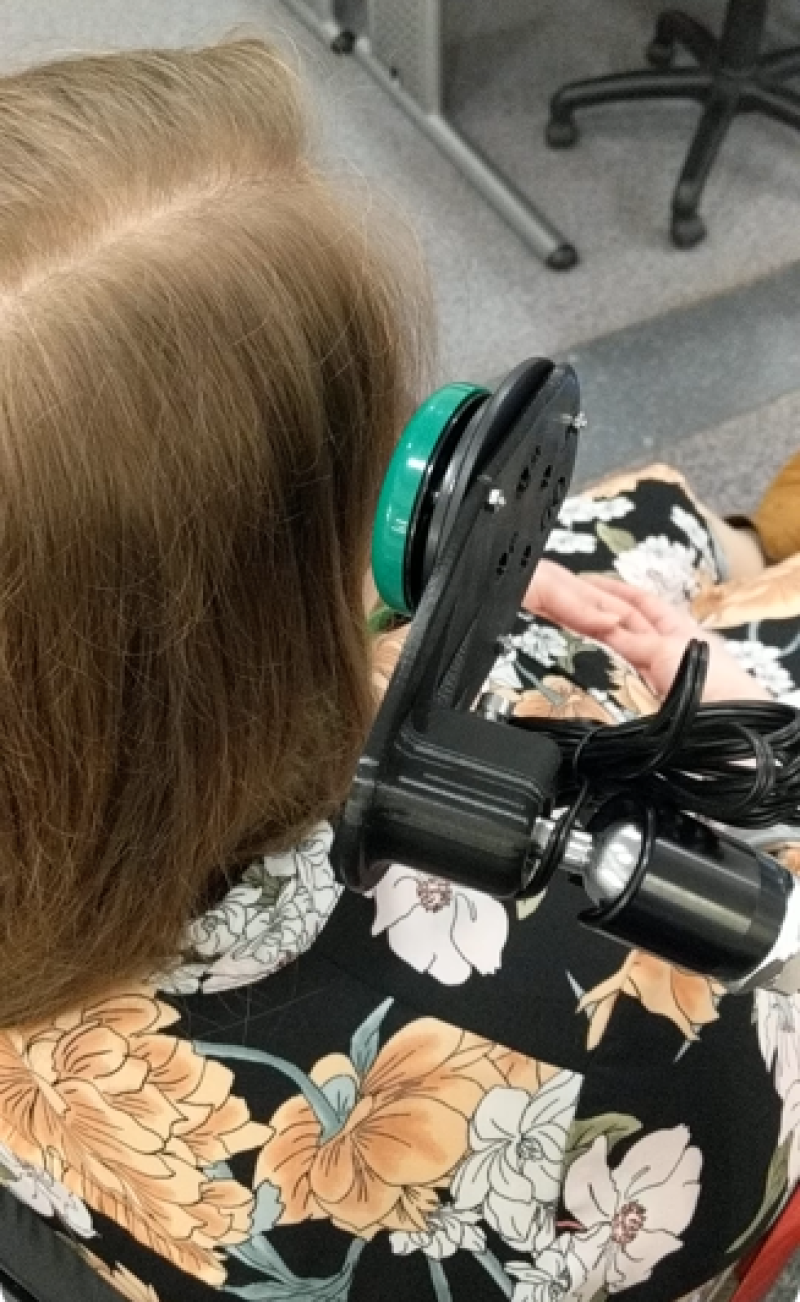
On 19 November, Dean Hall, Treloar's Assistive Technologist, attended TechAbility Conference in Nottingham to run a session on how 3D printing is used at Treloar School and College to enhance educational access of our students.
While presenting at TechAbility25, attended by practitioners in the field of assistive technology, Dean highlighted 4 case studies to illustrate how using 3D printing allowed students at Treloar's to overcome barriers in order to improve their mobility, access musical instruments and take an active part in lessons and activities.
The importance of assistive technology at Treloar's
Treloar's students are physically disabled (100% of our students are wheelchair users), many with complex clinical needs and sensory impairments. We provide a fully inclusive, supportive environment that allows our young people to learn whilst having therapy and care integrated into their tailored programmes. Our services provide them with the opportunity to be included and fully take part in life. Having specialist teams on site, including the Assistive Technology Team, means we are able to deliver outstanding education, therapy and care to around 180 children and young people, aged 4 to 25 years.
Our Assistive Technology Team plays a vital role in ensuring that every student has the tools and support they need to access learning and participate fully in school life. The team is made up of 6 dedicated professionals, each bringing specialist knowledge and skills to their work:
- 3 Assistive Technologists
- 1 Manager
- 1 Educational Technologist
- 1 Administrator
Together, the team provides tailored support to meet the diverse needs of our students. Their work includes:
- Equipment repairs
Keeping essential assistive devices functioning so students can rely on their equipment every day. - Bespoke design
Creating customised solutions—whether adaptations, tools, or set-ups—to support individual access needs. - Access assessments
Evaluating each student’s physical and technological requirements to ensure they have the right systems in place for learning. - Wheelchair programming
Adjusting and fine-tuning powered wheelchairs to optimise comfort, control and independence. - Device mounting
Designing and installing mounts for communication devices, tablets, switches and other equipment to ensure safe, effective positioning. - IT support
Providing technical help related to assistive software, hardware and integrated learning tools. - Multi-disciplinary Team (MDT) working
Collaborating closely with therapists, teachers, residential teams, families and external professionals to deliver holistic, student-centred support.
Uses of 3D within educational services
3D printing provides our staff with new ways of supporting learning, accessibility and engagement of the children and young people at Treloar School and College. It allows our AT Team to create bespoke mounts, switch holders, grips and other adaptations tailored precisely to an individual student’s needs. This enables faster turnaround, cost-effective solutions and greater flexibility compared to traditional manufacturing.
Our assistive technologists, with the support from our occupational therapists, can quickly design and test prototypes to support access and increase independence based on student feedback.
Practical uses of 3D printing at Treloar's
At Treloar's, we use a Ultimaker S5 (Filament Printer) known for its high reliability of prints. The below case studies illustrate how 3D printing transforms lives of our students:
Joystick knobs:
We found that at Treloar's we had an ever growing need for custom and replacement joystick knobs for both common wheelchair drive systems. Suppliers only offer a few options of shapes which were expensive. The right shape can mean the difference between independently driving their power chair or having to be reliant on help of carers. Our students have such complex physical needs they often need a unique custom solution.

2. Violin holder:
Our AT Team received a request from a school student with quadriplegic choreoathetoid cerebral palsy who needed help to play a violin as part of his music therapy sessions. Due to his strong movements with limited control, the violin needed to be anchored on the shoulder. Dean 3D printed a bespoke holder that attached to a shoulder strap and a bow guide fitted with bespoke clip to hold it in line.
All parts were designed to work with the student’s movements and to be easily adjustable.
3. iPad tactile keyguard:
Dean 3D printed a bespoke iPad Pro case that allows for interchangeable tactile plates designed for Clarion (Music App). The case gives students with visual impairments the ability to feel where to press on the screen to play the notes. The case comes with multiple plates with different layouts, depending on the notes being played. Swapping between plates is easy, allowing good flexibility of songs to be played or to change activity. The case is easy to be customised for other activities where guided access might not be right.

4. Flexible switch mount:
Flexible switch plates which were created for Manfrotto camera arms allow for semi rigid switch locations. Plates can be bent out the way in time of high tone and return to same position without injury.


